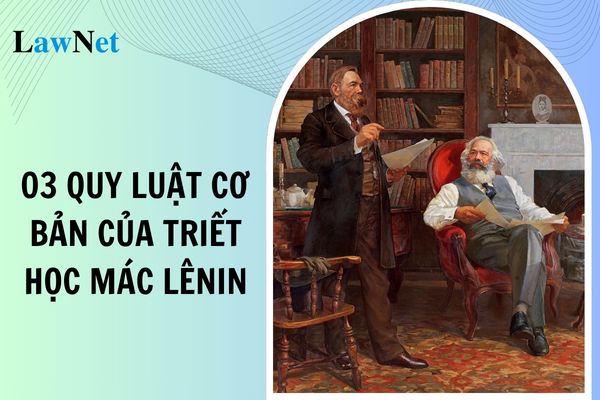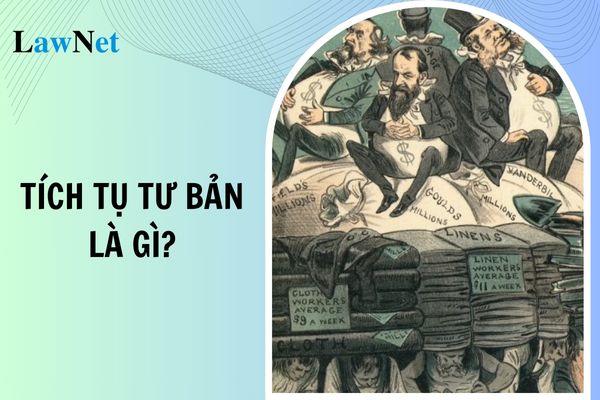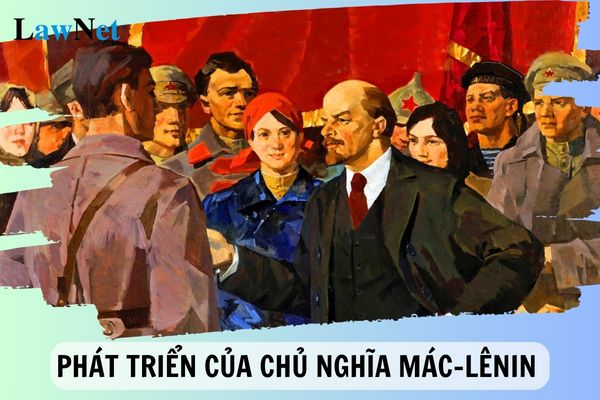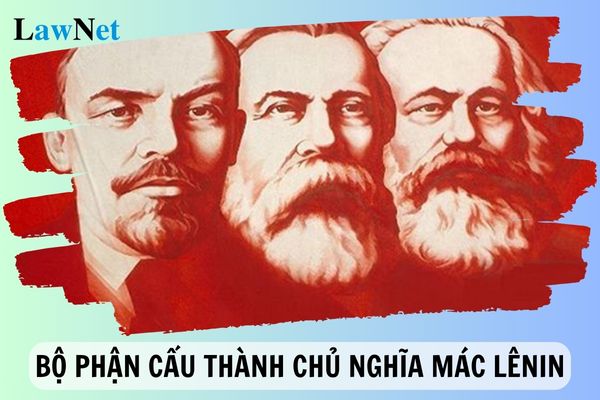What are the 03 fundamental rules of Marxist-Leninist Philosophy? When do credit-based students in Vietnam receive an academic warning?
What are the 03 fundamental rules of Marxist-Leninist Philosophy?
Marxist-Leninist philosophy encompasses three fundamental rules, which are the law of the unity and conflict of opposites, the law of the transformation of quantity into quality and vice versa, and the law of the negation, specifically as follows:
|
03 fundamental Rules of Marxist-Leninist Philosophy 1. The Law of Unity and Conflict of Opposites |
Overall, the three fundamental rules of Marxist-Leninist philosophy not only explain the development of nature but also apply to society and thought. They help us better understand the essence of development and change, thus enabling us to apply them in practice to promote sustainable advancement and development.
Note: The content of the three fundamental rules of Marxist-Leninist philosophy is for reference only!

What are the 03 fundamental rules of Marxist-Leninist Philosophy? When do credit-based students in Vietnam receive an academic warning? (Image from Internet)
When do credit-based students in Vietnam receive an academic warning?
Under Clause 1, Article 11 of the regulation on undergraduate education promulgated with Circular 08/2021/TT-BGDDT, credit-based students in Vietnam receive an academic warning at the end of each main semester when:
- Total number of failed credits in the semester exceeds more than half of the number registered for the semester or total number of failed credits from the beginning of the course is more than 24;
- Semester average grade is under 0,8 for the first semester of the course or under 1,0 for following semesters;
- GPA is under 1,2 for first-year students, under 1,4 for second-year students, under 1,6 for third-year students or under 1,8 for the following years.
What are the regulations on student exchange and training cooperation in undergraduate education in Vietnam?
According to Article 17 of the regulation on undergraduate education promulgated with Circular 08/2021/TT-BGDDT, the regulations on student exchange and training cooperation in undergraduate education in Vietnam are as follows:
- Training institutions shall formulate and promulgate regulations on mutual recognition of training process, training content and credit value to provide the basis for students of one training institution to take some units of study in another training institution and vice versa (hereinafter referred to as “student exchange”).
- On the basis of mutual recognition and assessment, a student of one training institution may register for some units of study of another training institution provided that the principals of both institutions approve of the registration and the number of credits accumulated in the latter institution (if any) does not exceed 25% of total academic load of the student’s training program.
- For training cooperation between two training institutions, mutual recognition and assessment of the number of credits that a student of one institution accumulates in the other institution shall not exceed 25% of total academic load of the student’s training program.
- Training institution regulations shall provide for and publish conditions for student exchange, training cooperation, recognition of study results and credit transfer for students of training programs on their websites.






- Vietnam: What is the sample report on a modern literary matter - innovations and renovations in the short stories "Chiếc thuyền ngoài xa" and "Một người Hà Nội"?
- Vietnam: What are the 05 sample 600-word argumentative essays on negative issues among youth today? How many types of texts are there in the content of the 12th-grade Literature curriculum?
- Vietnam: What are the best sample paragraphs about your family for 6th-grade students? What elective subjects do 6th-grade students learn?
- Vietnam: What are the best sample self-introductions in English for 5th-grade students? What topics are covered by the 5th-grade English curriculum?
- Vietnam: What are the sample imaginary paragraphs on Tin-tin and Mi-tin entering the magical garden for 4th-grade students? What are the 05 essential qualities required for 4th-grade students?
- Vietnam: What are the guidelines for preparing the briefest lesson "A Strange Tale of the Fisherman's House/Truyện lạ nhà thuyền chài"? What is the eligibility for lower secondary graduation recognition for 9th-grade students?
- What are the enrollment methods of Pham Ngoc Thach University of Medicine in 2025?
- Vietnam: What are the sample 1st end-of-semester question papers of 9th-grade Literature? What is the form of assessment for 9th-grade Literature?
- Vietnam: What are the 10 sample 200-word social argumentative paragraphs on the strength of discipline? Is improving manpower one of the goals of education?
- What are the sample social argumentative essays on a social issue raised from a literary work in the 8th-grade Literature curriculum in Vietnam?

